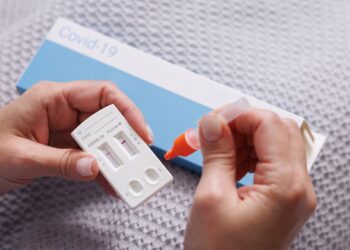BALTIMORE — A new study by 12 medical sites found that up to a third of children who were hospitalized because of COVID-19 experienced persistent symptoms one to two years after they were released.
The research, published earlier this month in Frontiers in Pediatrics, analyzed the post-hospital quality of life for children previously diagnosed with COVID-19 or multisystem inflammatory syndrome in children — a rare condition associated with COVID where body parts like the heart, lungs, kidneys, brain, skin and eyes become inflamed.
Researchers found that 30% of the families participating in the study reported that their child had not fully recovered from COVID or the syndrome also known by its initials as MIS-C.
Of the children who hadn’t recovered following their hospital discharge, the majority — 87% — had neurological symptoms, the Kennedy Krieger Institute in Baltimore said in a news release this week. About three in five children continued to struggle with headaches and just under half experienced weakness.
These numbers “speak volumes” about the lasting effects that COVID has on some children, said Dr. Beth Slomine, co-director at Kennedy Krieger’s Brain Injury Clinical Research Center and one of the study’s co-authors.
“Our findings highlight the urgent need for better monitoring systems and care strategies to address the long-term effects that the pandemic made on pediatric health,” said Slomine, who is also Kennedy Krieger’s assistant vice president of psychology.
The study included 79 children from 12 medical centers across the country and lasted from January 2020 to July 2021 during the coronavirus pandemic. It is part of a global research effort to better understand how often people hospitalized with COVID experience neurological problems once they are released.
Other important findings from the study included that of the children who had not recovered from COVID, 40% had at least one return emergency visit and 24% were…
Read the full article here







